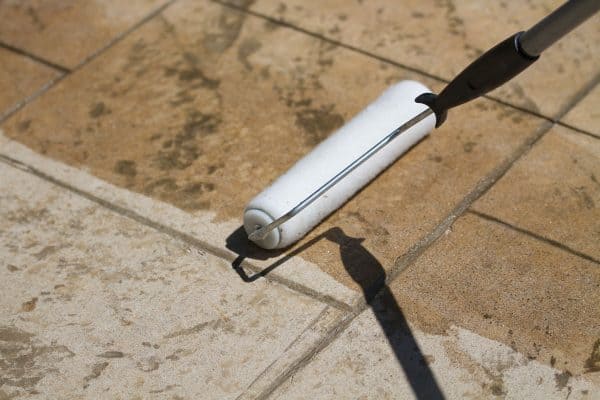Disclosure: We may get commissions for purchases made through links in this post.
Gravel is one of the most common choices for outdoor flooring material. Picking the right gravel size is vital to achieving your desired outdoor appearance for your home. With this in mind, we have conducted in-depth research and come up with the best gravel size option for your driveway.
The best gravel size for driveways is the #3 size gravel, measuring 1 to 2 inches in diameter. While most driveways contain gravel of different sizes, size #3 gives your driveway a strong base.
Apart from size, make sure you consider other factors before adding gravel to your driveway. Keep reading to learn how to choose the appropriate type and size of gravel that fits your budget.
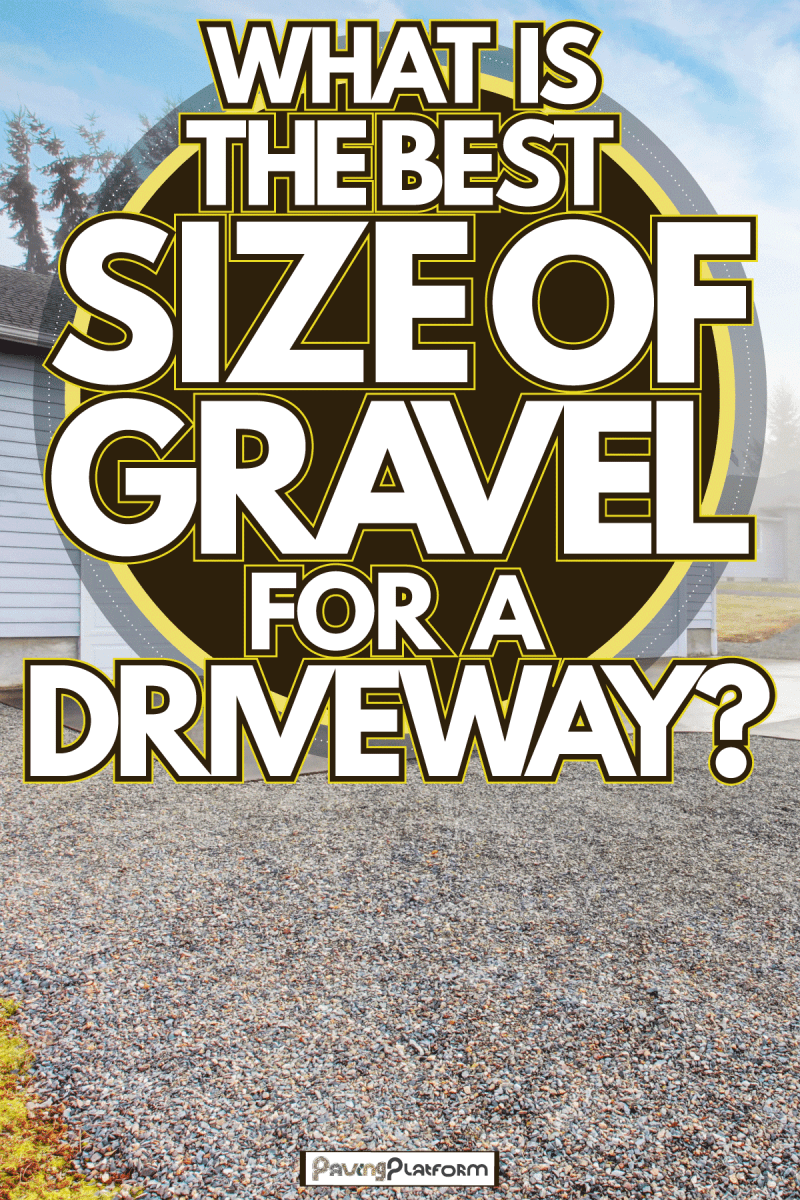
What Size of Gravel Do I Need For My Driveway?
The size of gravel used for your driveway significantly impacts how firm and long-lasting the surface would be. For optimal strength, you would need to install different layers of gravel with a mixture of three different gravel sizes. Here are the three layers and their corresponding sizes.
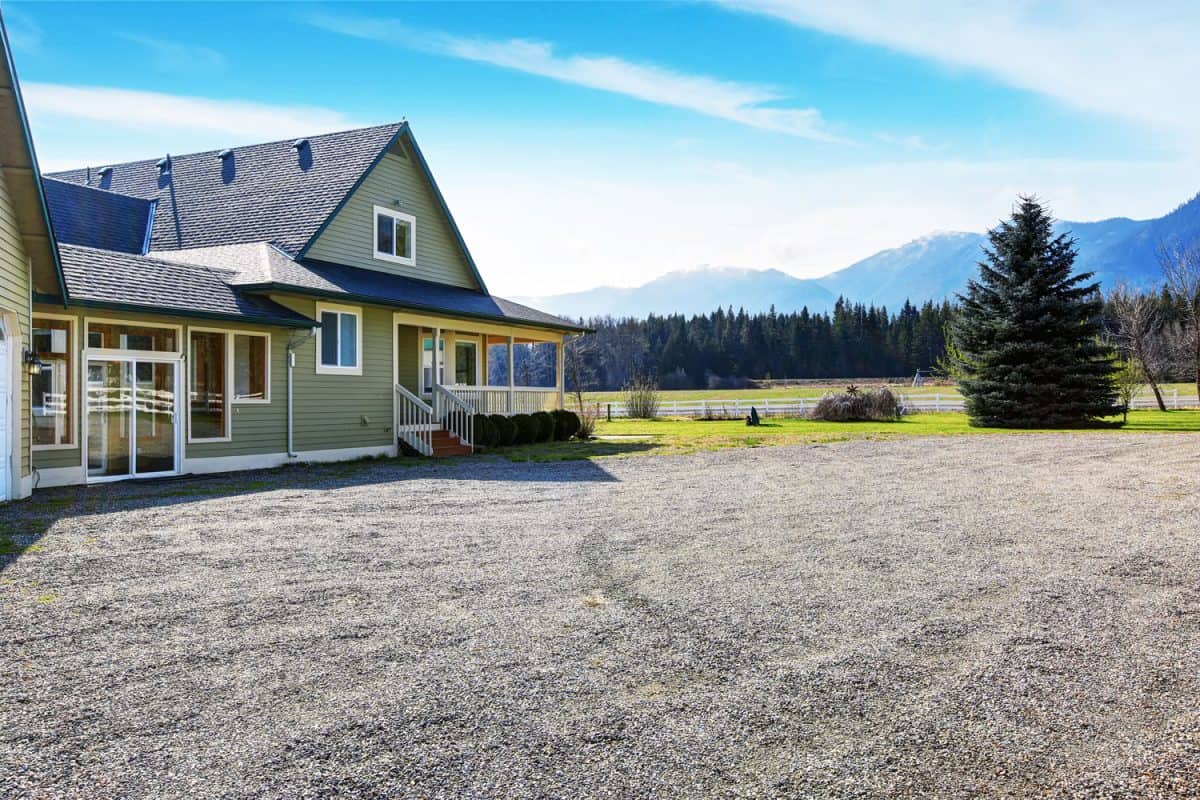
Base Layer
Large size gravel is commonly used for the base layer. A popular choice is #1 angular gravel measuring 4 inches in diameter. You can also make base layers with size #4 stone. This type of stone is about the size of a golf ball and is generally mixed with sand.
Middle Layer
The middle layer of a gravel driveway is constructed with size #5 crushed stone. This type of stone makes an ideal base for adequate drainage. It fits well against and between the larger gravel, producing a more sturdy driveway foundation. This machine-crushed stone is the best alternative for landscaping in addition to driveways. The gravel's size also allows for good drainage.
Top Layer
The top layer is the part of the gravel you walk on. It comprises a mixture of small gravel stones and rock dust. The stones and dust combine to form a tight-knit surface that withstands years of use. It comes in several colors, allowing you to match the driveway's appearance to that of the house and other hardscape construction in your yard. The top layer of the gravel (#57) is constructed with a gravel size tinier than the middle layer's.
Tips For Proper Layering of Driveway
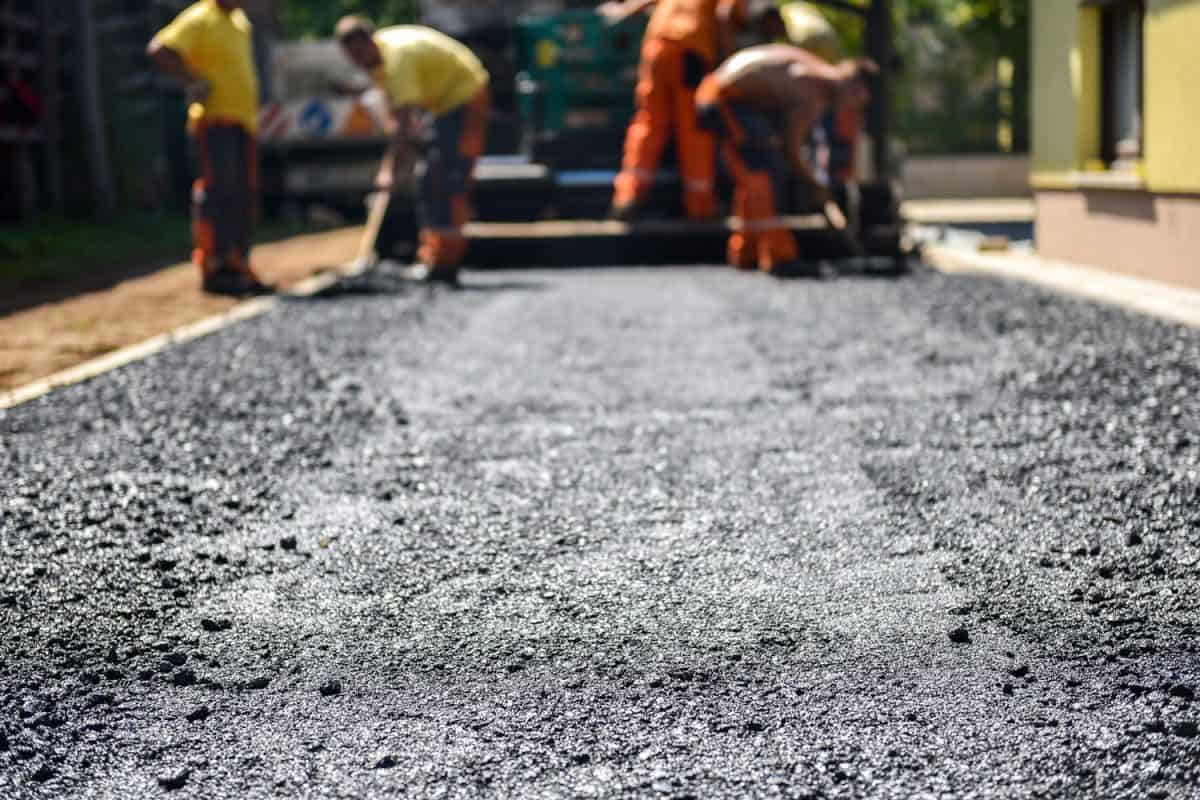
Over time, driveways are prone to weed infestation if the surface isn't treated with weedicides. To avoid this you can treat the soil beneath the base layer or use landscaping fabric.
Landscaping fabric is a material that can be used to cover a garden or lawn. It helps retain moisture, reduce the need for watering, prevent weed growth, and provide protection from harsh weather conditions.
See heavy-duty landscape fabric on Amazon.
Another useful tip you while constructing a gravel driveway is to add a higher crown in the middle. This would enable rainwater to move towards the sides of your driveway, instead of through the middle. Thereby reducing erosion or percolation of water after heavy rains. Read this article about laying stepping stones on gravel to learn more about proper gravel layering.
5 Types of Gravel For Driveways
Crushed stone and naturally produced gravel are the two basic types of gravel. Crushed stone is made by crushing bigger chunks of stone or rock into smaller bits. The crushed fragments are usually white or gray due to the crushing process.
Natural gravel is found in areas where water has eroded the ground until it has created channels through which water flows. The water carries rocks and other materials along with it, and these materials are deposited at the bottom of the channel to form a bed of gravel. This type of gravel is often referred to as bedrock.
Manufactured or artificial gravel is made from crushed stones that have been mined from beneath the surface. This type of rock is often used for paths, driveways, and playgrounds and is sometimes more durable than natural gravel. The following is a list of some of the best types of driveway stones available.
1. All-Purpose Gravel
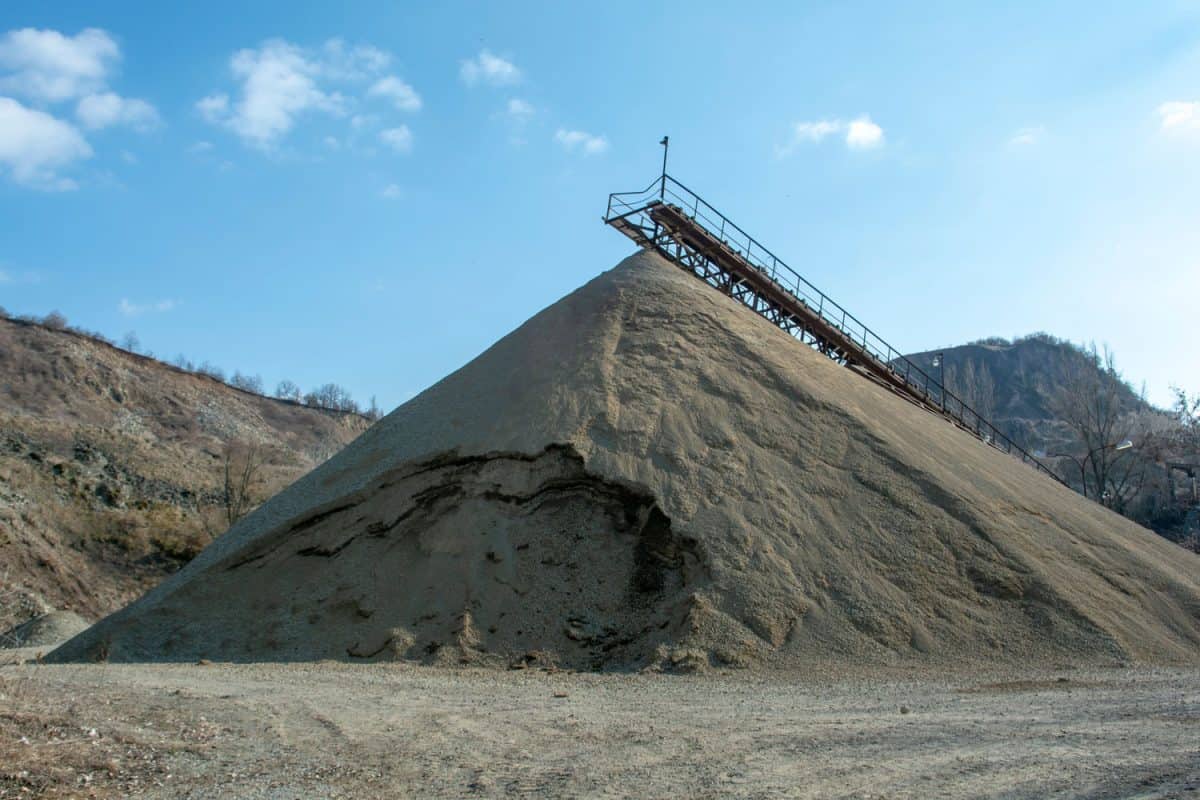
All-purpose gravel is one of the best choices of gravel for driveways. Its combined colors give it a natural appearance. The pebbles' modest size offers an easy surface to walk and drive on while still allowing for good drainage.
All-purpose gravel is more appealing than crushed stone alternatives. It has small, irregularly shaped particles that help it stay put after installation. As a result, traffic will be less likely to push it off the driveway.
Pros
- Attractive appearance
- Good drainage
- Smaller stones are easier to lay
Cons
- Smaller pieces might shift over time
2. Pea Gravel Pebbles
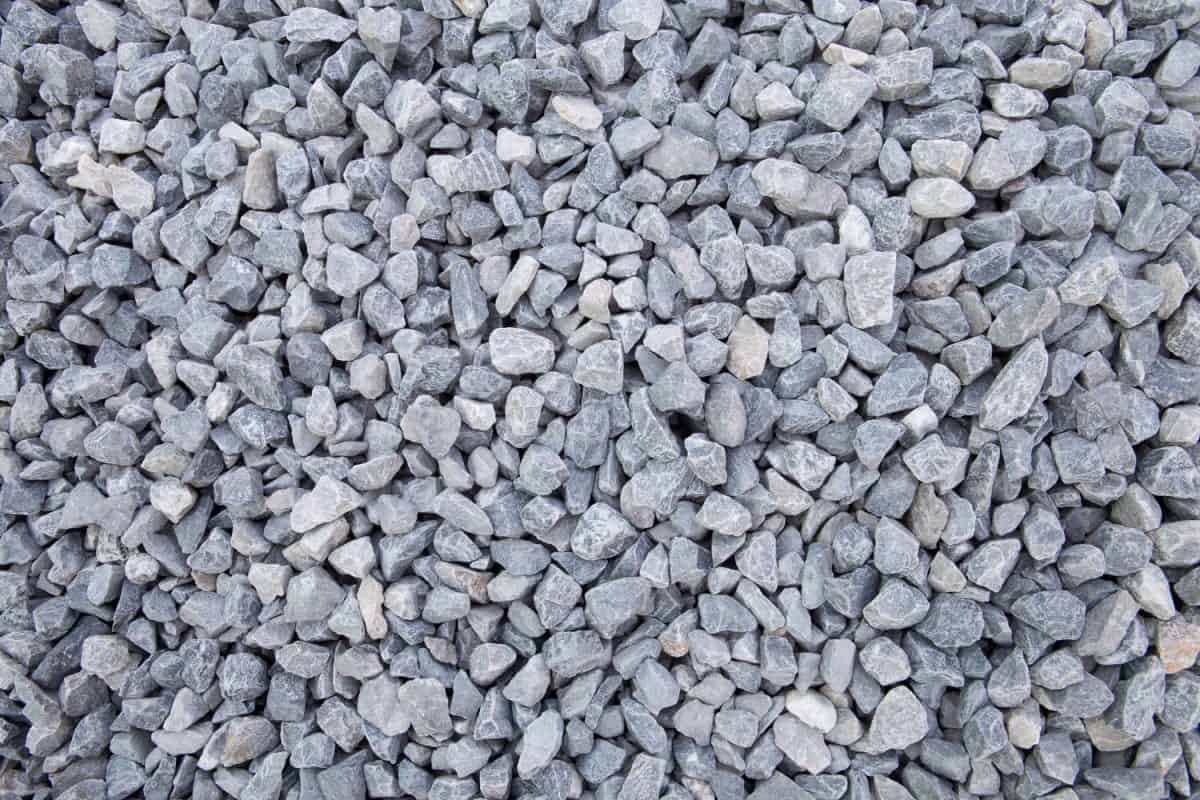
Pea gravel ranges in size from 12 to 112 inches. It binds together better than other smaller stones because of the combination of sizes. As a result, it is less likely to be moved around by vehicles. It is smooth because of natural weathering but can also be made smoother by tumbling it with sand or other materials.
Pea gravel is a popular material for driveways and pathways. It does not become slippery when wet and is not harmful to lawns when used as a pathway surface material. It has a variety of colors that range from tan to dark brown.
Pros
- Larger stone sizes give creates more stability
- Different available tones add aesthetic value
- Offers good drainage
Cons
- More expensive than other types of gravel
3. River Pebbles
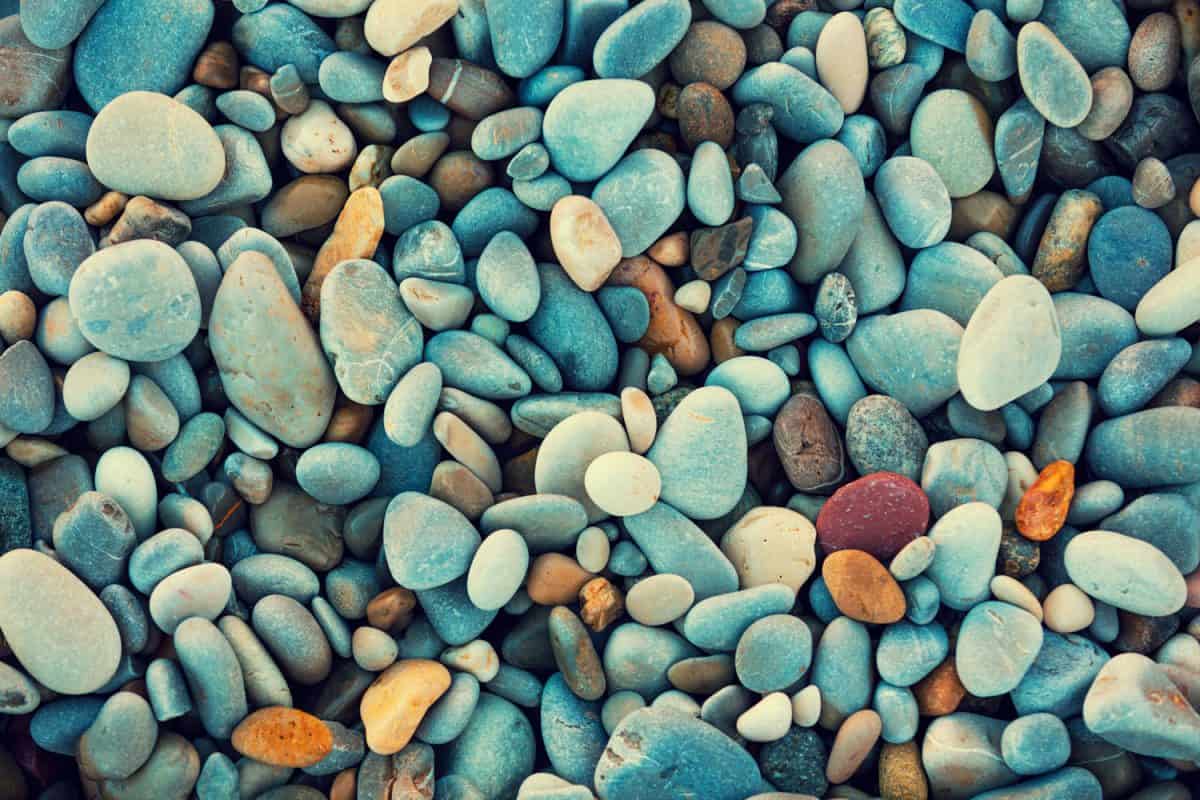
River rocks are a type of sedimentary rock that forms from the deposition of mud, sand, and gravel. These rocks can be found in rivers or streams. Because of its circular shape, it might not be the best for driveway surfaces.
River pebbles, on the other hand, are a great option if you want a river rock driveway. River rocks, or pebbles, ranging from sizes 1 to 3 inches, make up this gravel and they are safe to walk or drive on.
Pros
- Aesthetically pleasing looks
- Drains well
- Compact and hardens overtime
Cons
- It doesn't give a uniform surface
- Can be expensive to buy
4. Decomposed Granite
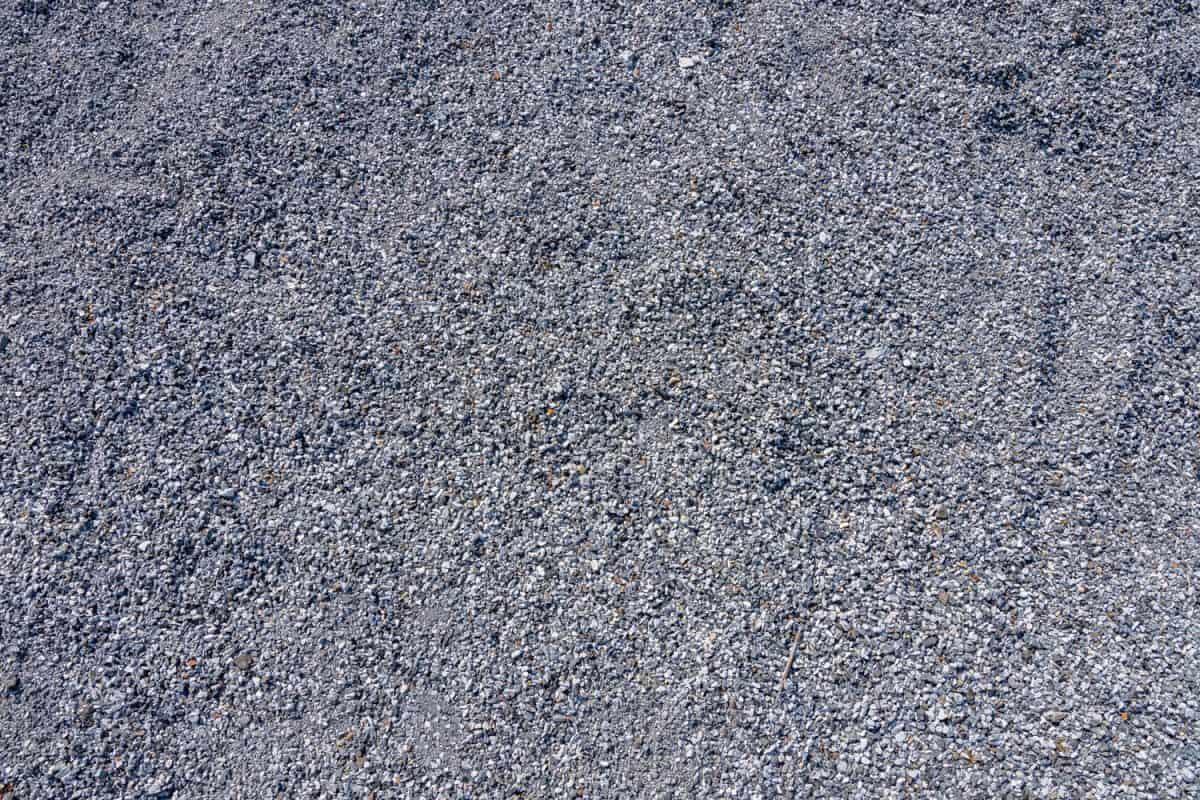
Decomposed granite is a type of concrete that is made from a mixture of sand and aggregate. It is widely used in construction, as it has excellent compressive strength and can be poured into molds to create various shapes. Decomposed granite resembles gravel but is significantly more refined, making it a more stable gravel road surface.
Decomposed granite is becoming an increasingly popular choice for landscaping projects. It looks like natural stone but is much cheaper than true stone. Decomposed granite is usually used in construction projects because it has a high resistance to erosion and weathering.
Pros
- It compacts well with time
- Can be used for decorative purposes
- It can hold cars and foot traffic
Cons
- Poor drainage unlike some gravel options
- Tiny particles of stone can stick to your shoe
5. Marble Chips
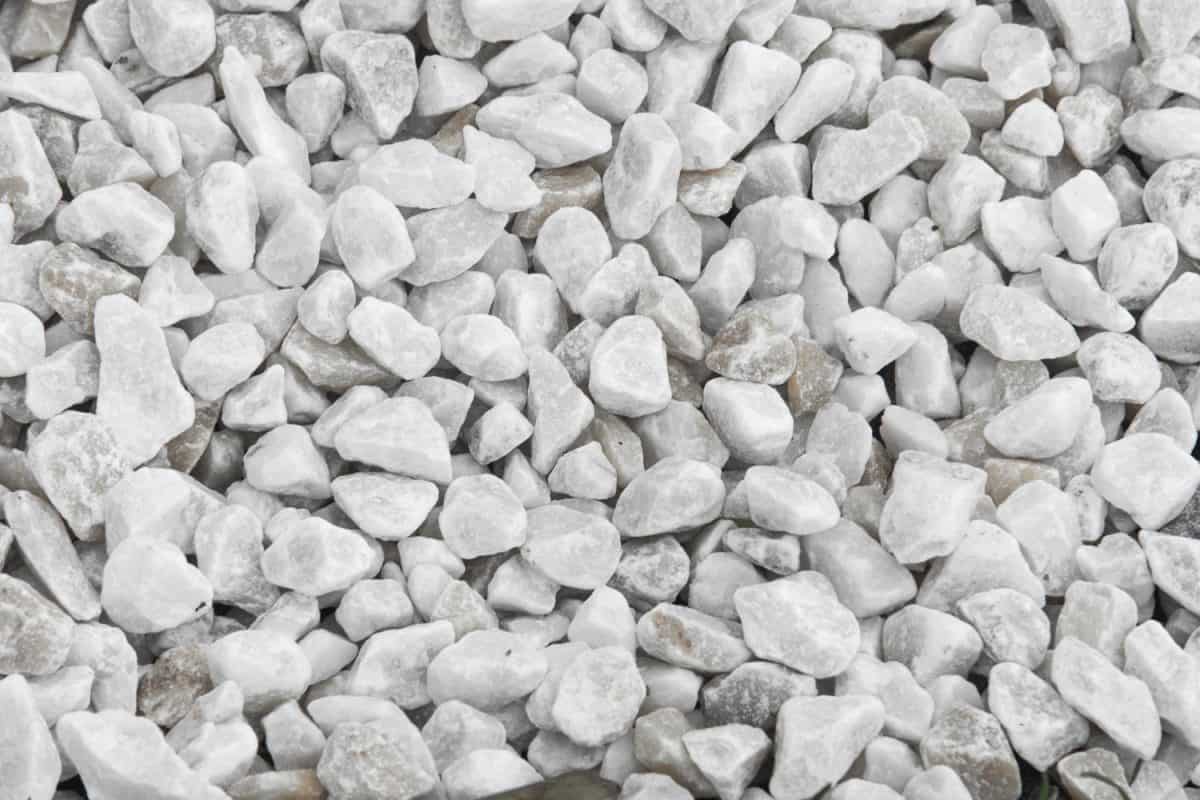
Marble is a metamorphic rock. It can be found on every continent and in many countries, and it has been used for centuries as a building material. Marble adds elegance to interior structures like bathrooms and kitchens.
It can also be used for hardscaping construction such as driveways. Marble's colors range from dazzling sparkling white to light gray. This type of gravel has a diameter of around 2 inches, making it large enough to withstand foot and car traffic.
Pros
- Luxury look
- Good drainage after rainfall
- Stable and does not disintegrate
Cons
- Expensive
What is The Cheapest Gravel For Driveways?
One of the cheapest gravels you can use in your driveway is the crush and run gravel. It is made by combining gravel and limestone. It costs barely $0.40 per square foot. It is an affordable option if you have a large and spacious driveway. Installing a driveway can be expensive, so you should choose inexpensive materials which are still high-quality and durable.
How To Choose Gravel For Driveway
The sort of gravel you should use for your driveway is determined by your preferences as well as the weather conditions in your location. Gravel is installed in three layers, with different gravel sizes for each. #3 gravel should be used for the topmost layer as it provides a strong base and drainage for your driveway.
The gravel for driveways should be between 3/8 and 3/4 inches in diameter in general. In comparison to gravel used in paths, they should be more prominent. In addition, you should consider the number of fines or small sand-like granular material in the gravel as they are essential for binding. Check out this article "Is Gravel Heavier Than Sand," for more on gravel sizes, compared to sand.
Conclusion
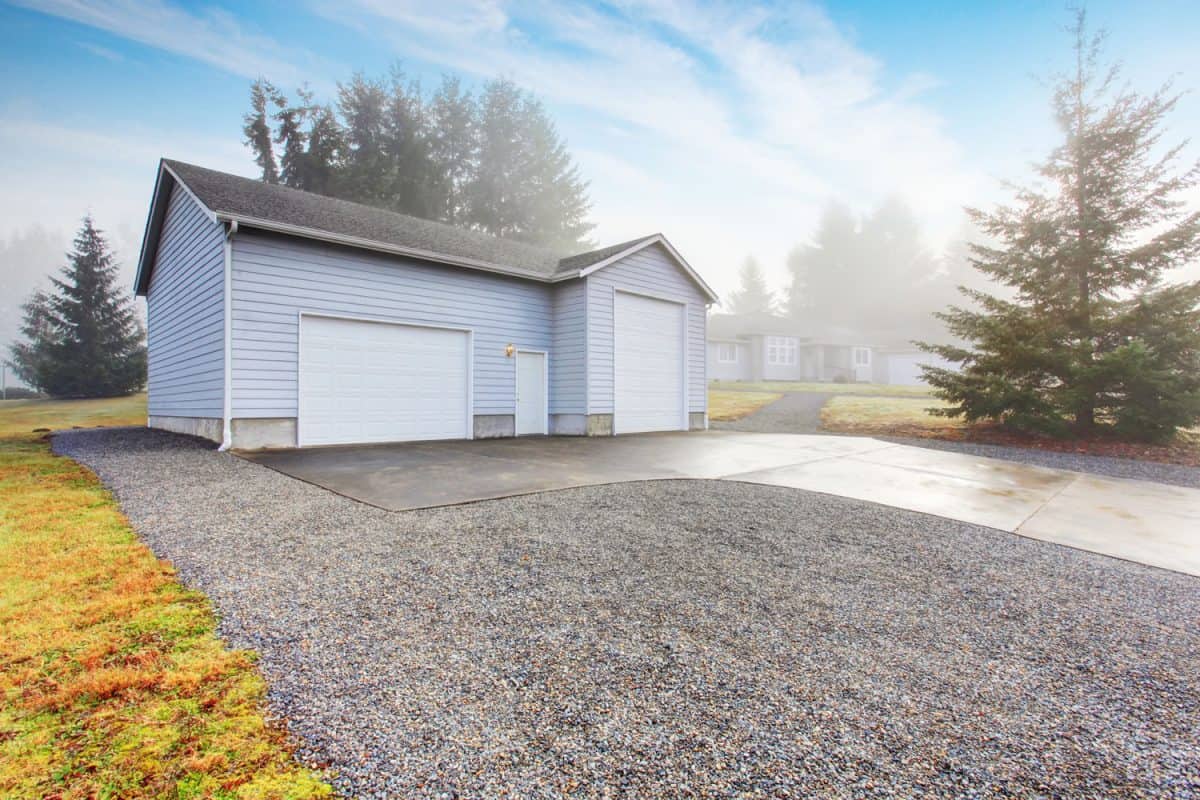
Gravel is a low-cost material that you can use for your driveway. It can last for many years if maintained properly. There are many types of gravel, but they are primarily made up of the same thing - crushed rock of varying sizes.
Gravel is not only cheaper than concrete, but it's also easier to install. You can do it yourself without having to hire a professional, as long as you have the right tools to get the job done.


![Vibrant Red Paver Stone Path, Can You Spray Paver Sealer? [How To Apply It]](https://pavingplatform.com/wp-content/uploads/2022/04/Vibrant-Red-Paver-Stone-Path-600x400.jpg)
![Properly laid out red pavers for a garden, Can You Tint Paver Sealer? [And How To]](https://pavingplatform.com/wp-content/uploads/2022/04/Properly-laid-out-red-pavers-for-a-garden-600x400.jpg)
